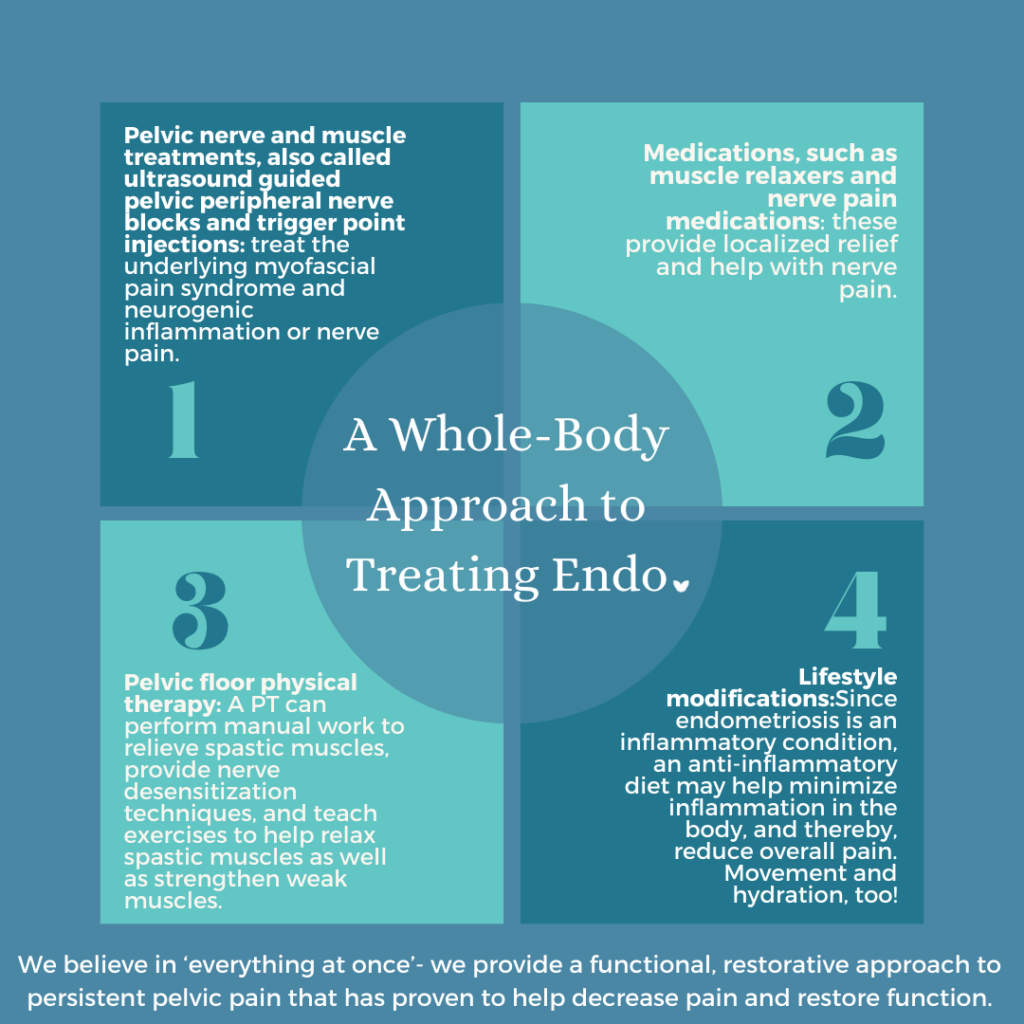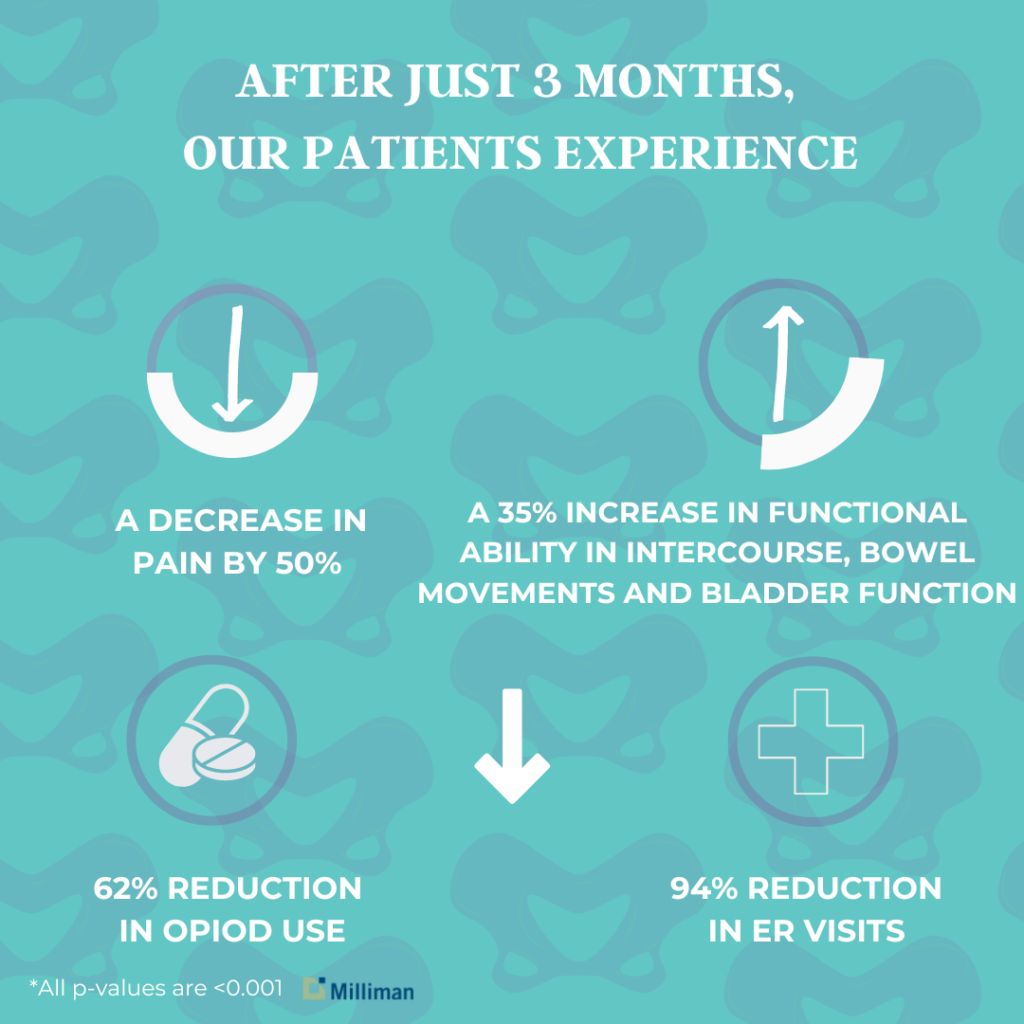By MARJORIE MAYE MAMSAANG, DO
Endometriosis is when inflammatory tissue, like the lining of the uterus, grows outside of the uterus. It can grow anywhere in the body, however, most commonly around the abdominal and pelvic area, surrounding the bowels, bladder, and the pelvic floor. The endometriosis tissue releases inflammatory compounds that can cause pain.
The most well-known symptom of endometriosis is dysmenorrhea, also known as painful periods. Women with endometriosis may also have abdominal pain and distention or bloating, pain during and/or after sexual intercourse, painful urination or bowel movements, bleeding between periods, urinary urgency and frequency, fertility issues, and severe fatigue or low energy. In addition to these common symptoms of endometriosis, patients may also have digestive issues, such as constipation, diarrhea, or a cyclical pattern of both. At times this pain is so debilitating that women may miss work, school or cannot participate in daily activities. However, the severity and symptoms vary from patient to patient.
IS ENDOMETRIOSIS CONSIDERED AN AUTOIMMUNE DISEASE?
The immune system protects the body from foreign invaders. An autoimmune condition is when the body attacks its own cells, tissues, or organs as an immune system response. This can lead to varying symptoms depending on what body part is affected. For example, Celiac disease is an autoimmune condition affecting the gastrointestinal tract and can cause diarrhea, fatigue, weight loss, bloating, abdominal pain, nausea, and vomiting.
People with autoimmune disorders are more likely to develop other autoimmune conditions.
So…is endometriosis considered an autoimmune condition? The technical answer is NO! Endometriosis is not officially classified as an autoimmune condition.
However, women with endometriosis are at a higher risk for having a concomitant autoimmune disease. The inflammation from endometriosis causes an imbalance in the immune system, which can cause an abnormal immune response. Alternatively, another concept suggests that an underlying abnormal immune response may exist as a contributing factor to endometriosis.
The most common autoimmune diseases associated with endometriosis are:
- Systemic lupus erythematosus (SLE)
- Rheumatoid arthritis
- Celiac disease
- Multiple sclerosis
- Inflammatory bowel disease
- Addison’s disease
- Sjogren’s disease.
The most commonly associated condition with endometriosis is autoimmune thyroiditis, also known as Hashimoto’s disease.
Other co-existing conditions that can occur are vaginal injections, chronic endometritis, pelvic inflammatory disease and surgical site infections after hysterectomy. Although these conditions may have a high correlation with endometriosis, they may not be connected.
Women with endometriosis are also at higher risks for two types of ovarian cancer- endometrioid and clear cell.
It’s important to know that pain is never normal. You know your body best and autoimmune disorder or not, endometriosis is a real disease with real impacts on your body – physical, mental and emotional. If you suspect you may have endometriosis, it’s important to talk to your healthcare provider.


Would You Like to See a Specialist?
Call us at (646) 481-4998 or click to request a regular appointment.